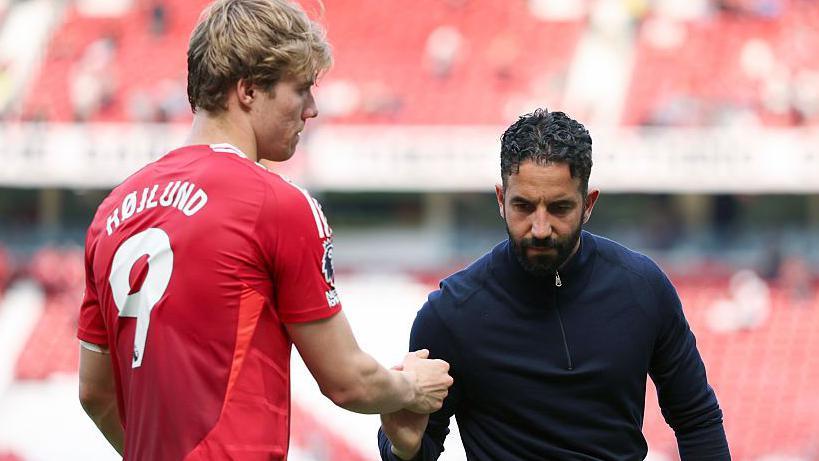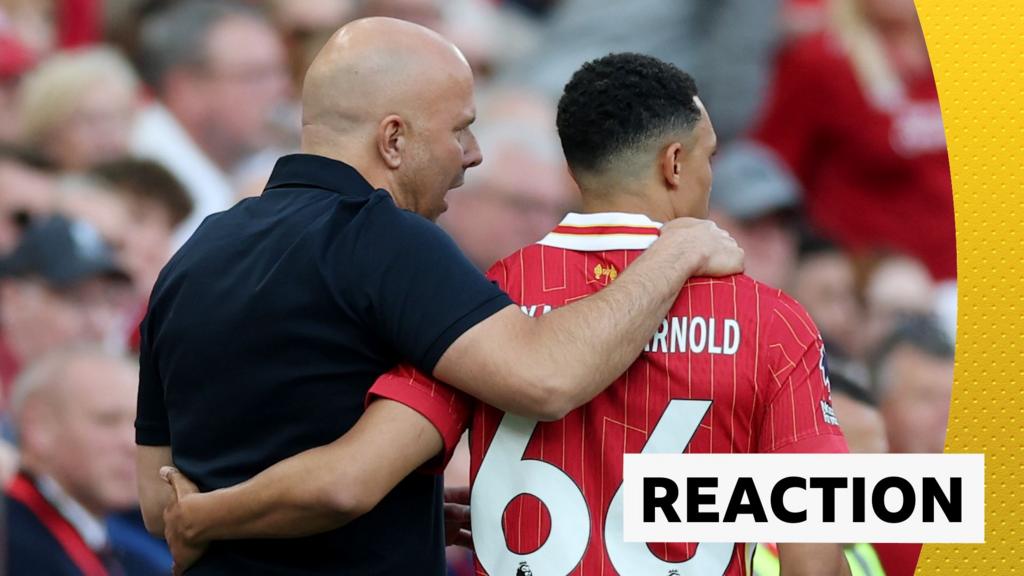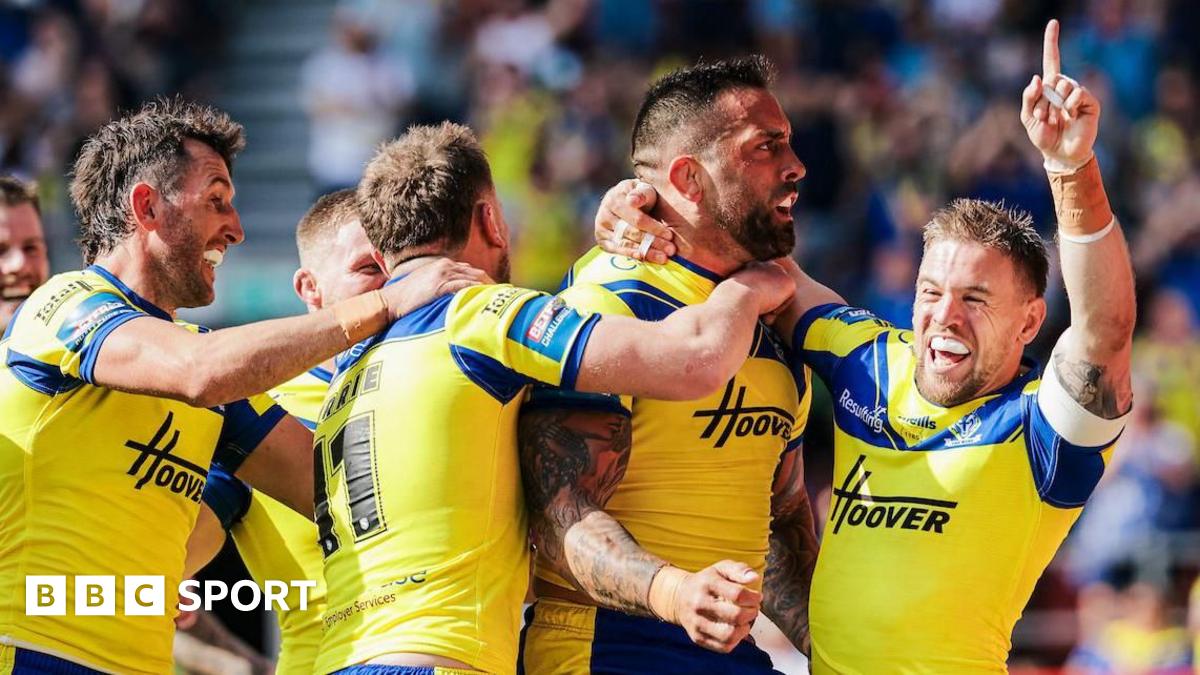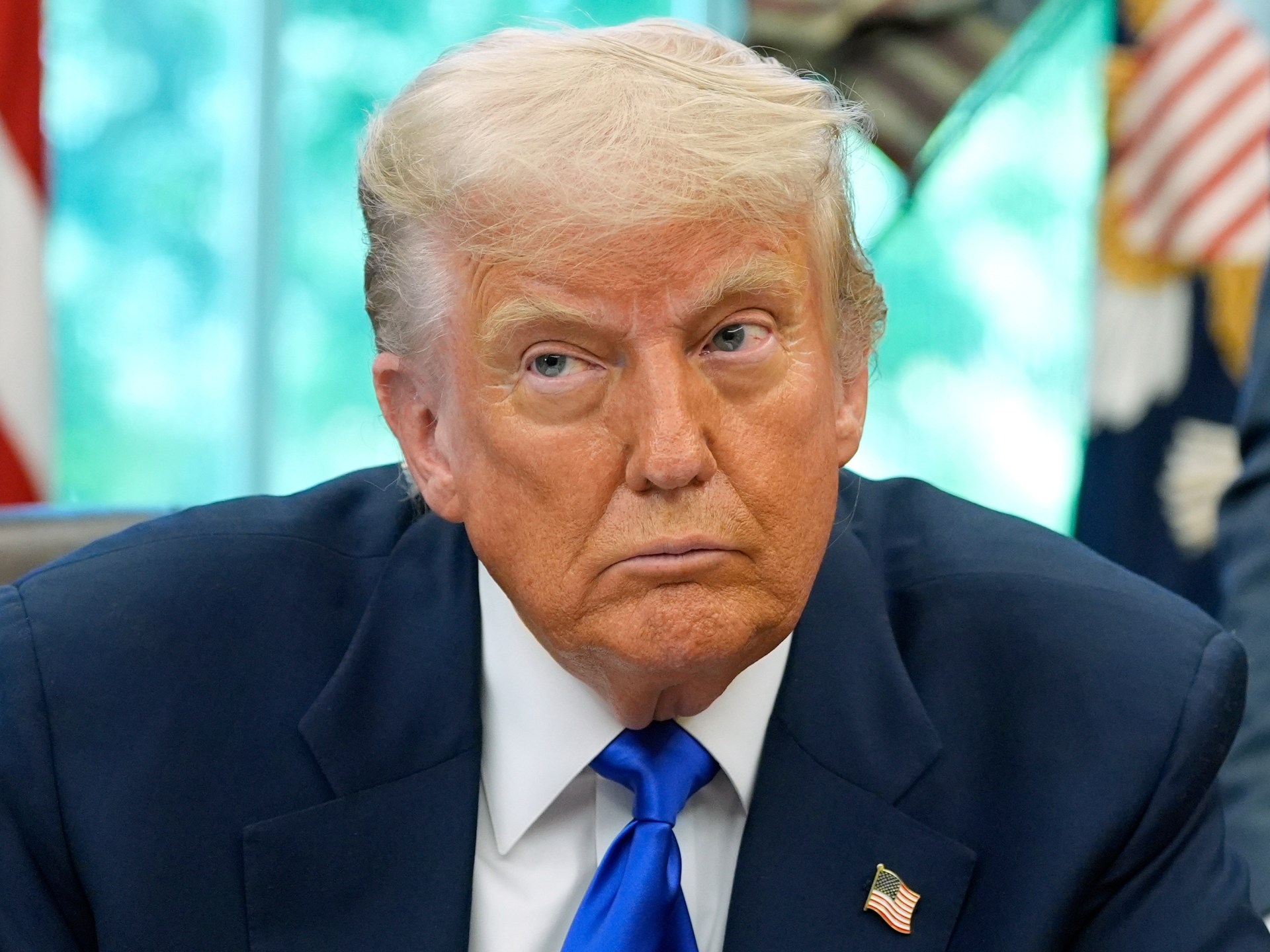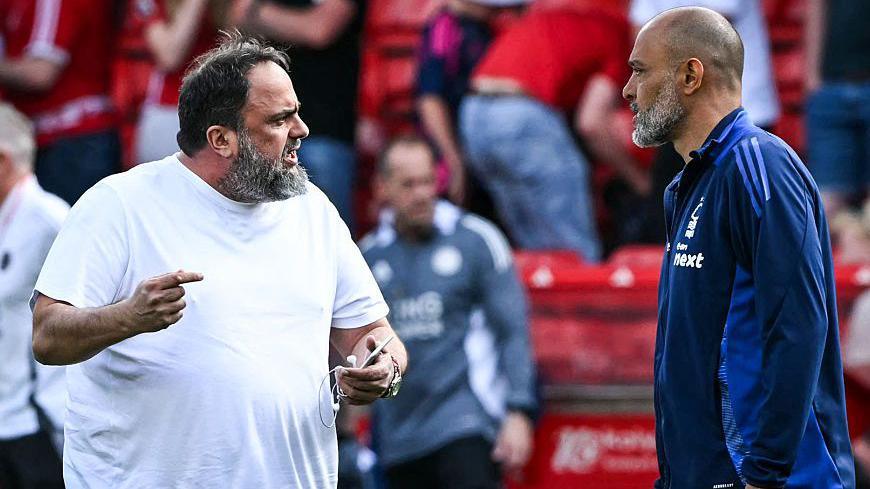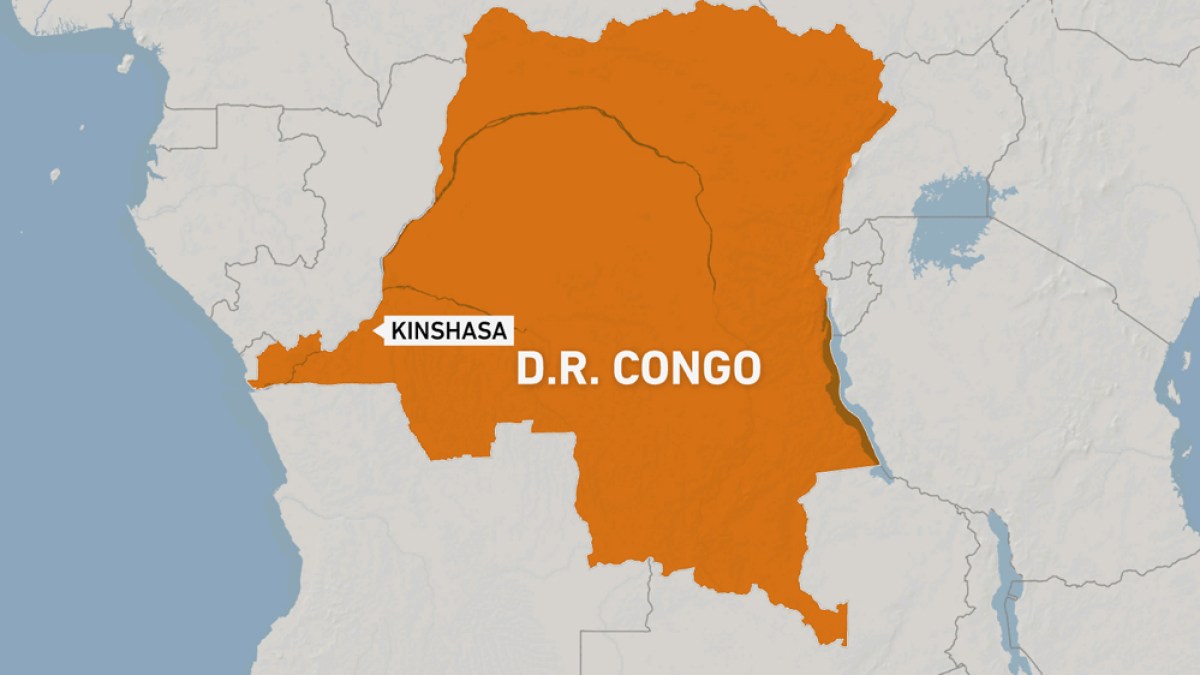Since returning to the White House, US President Donald Trump has touted corporate and foreign US investment announcements as proof he is ushering in “the golden age of America”.
On January 21, Trump said that before he’d finished the “first full business day” of his second term, the United States had “already secured nearly $3 trillion of new investments”.
On April 2, he said, “It looks like we’re going to have about $6 trillion of investments”. Six days later, Trump told National Republican Congressional Committee Dinner attendees that the investment total was “now revised up to about $7 (trillion)”.
During an April 30 NewsNation town hall, Trump speculated that “it could be more than $8 trillion”.
On May 4, Trump told Kristen Welker, the host of the NBC News programme Meet the Press, “I think we probably have close to $9 trillion of investments coming into this country.”
On May 6, Trump told reporters, “I think the real number could be $9 or $10 trillion.”
Finally, on May 8, Trump said, “We have now close to $10 trillion — think of that, $10 trillion” in investments. “We’re talking about essentially two months.”
That’s far beyond the figures the White House has released publicly.
We tallied the White House’s public lists of investments; they amount to $2.1 trillion in corporate investments, or at most $5.1 trillion when including promised investments from other countries. Experts cautioned that the promised corporate investments are not guaranteed to materialise in full, or during Trump’s presidency, and some of them would have occurred regardless of who was president.
Trump isn’t the first to overstate new investments on his watch. Outgoing US President Joe Biden said in 2024 that his bipartisan CHIPS and Science Act had attracted $640bn in private investments; economists told PolitiFact that Biden’s numbers were based on what companies had announced, which is not the same as dollars already spent.
Roman V Yampolskiy, a University of Louisville professor and a specialist in artificial intelligence, which dominates the promised investments Trump cited, said, “Historically, large-scale investment announcements often overpromise and underdeliver. There is a performative element to them, especially in politically charged contexts. They function as political theatre as much as economic commitment.”
White House lists do not match Trump’s words
Since Trump’s inauguration, the White House has publicised investment announcements from three countries and roughly 60 companies on its website, including in a “non-comprehensive running list”. Many of the highest-dollar corporate announcements were in March and April.
Corporate announcements in the White House’s lists total approximately $2.1 trillion worth of US investment.
The White House separately has cited commitments from the United Arab Emirates to invest $1.4 trillion over the next 10 years; from Japan to “boost” its investment in the US to $1 trillion; and from Saudi Arabia to invest $600bn in the US during Trump’s presidency. Combined with the corporate announcements, these bring the total to about $5.1 trillion, $4.9 trillion short of Trump’s figure.
But the $5.1 trillion total has caveats. For example, the White House said “Japan announced a $1 trillion investment in the US”, but the article it linked said in 2023, Japan’s US investment was $783.3bn and Japan would “boost” that to $1 trillion. That’s an increase of $216.7bn rather than a new $1 trillion investment. That would put the total value of newly pledged US investment at about $4.3 trillion.
Trump’s second-term White House tally of US investments
The White House figures can’t easily be used for apples-to-apples comparisons. Some of the investments are planned over Trump’s four-year term, others over five years or a decade. In one case – ADQ and Energy Capital Partners’ planned $25bn investment — it isn’t limited to US-based projects.
The White House declined to detail additional investments. A spokesperson pointed to federal Bureau of Economic Analysis data that shows a 22 percent increase in business investment in the first quarter of 2025, calling it a historic increase.
However, experts cautioned this increase was shaped by businesses stocking up on inventory before Trump’s tariffs take effect and said the increase is unlikely to be sustained.
Many of the announcements are aspirational, experts say
Experts told PolitiFact that each of the five biggest investments on Trump’s list warrants some caution, because they might not reach Trump’s cited dollar amounts or were not solely prompted by Trump’s policies.
“Many of these announcements, particularly those in the AI and semiconductor sectors, appear to be, at least in part, aspirational in nature,” Yampolskiy said. “They serve a signalling function: to attract investor attention, shape policy discourse, and secure favourable regulatory or funding environments.”
The five largest company investments collectively account for 82 percent of the dollar value on the White House’s corporate list.
Five companies accounting for the majority of new investment promises are:
Stargate
The Stargate Project is an artificial intelligence collaboration among OpenAI, Oracle and SoftBank, announced during a January 21 White House event. The White House values the investment at $500bn.
The company’s official announcement says $100bn will be invested “immediately” and that it “intends to invest” a total of $500bn over the next four years, a goal repeated by SoftBank CEO Masayoshi Son at the White House event.
“Whether that much will ultimately get spent remains to be seen,” wrote John Higgins, chief economist at Capital Economics, an international consulting firm.
Enrique Dans, who studies technology and policy at Madrid’s IE Business School, said the $500bn figure is “astronomical – roughly 2 percent of US gross domestic product – and lacks clear documentation”.
At the White House event, OpenAI CEO Sam Altman said, “We wouldn’t be able to do this without you, Mr President.” But Altman had been discussing plans for a $100bn investment 10 months before Trump won his second term, The Washington Post reported, including an Abilene, Texas, data centre that began construction in summer 2024.
“AI investments have been on a global trajectory driven by technological maturity and competitive pressure, especially from China,” Dans said. “Any US president would have seen a surge.”
Nvidia
Nvidia Corp, another AI company, said it plans to invest up to $500bn in US infrastructure over the next four years. Previously, Nvidia manufactured most of its chips in Taiwan.
“It is unlikely Nvidia would have moved any production to the US if it was not for pressure from the Trump administration,” Gil Luria, an analyst with the financial services firm D.A. Davidson, told Reuters. However, Luria added, “The half a trillion number is likely hyperbole.”
Dans said that although tax cuts from Trump’s first term have benefited the company’s focus on US-based efforts, “the core growth likely would have occurred anyway”, regardless of the president.
Apple
On February 24, days after Apple’s CEO, Tim Cook, met with Trump, the consumer electronics giant announced it plans to spend “more than $500bn in the US over the next four years.”
Analysts have expressed scepticism that this represents new investment. Dans called the investment “simply more of what [Apple] already does,” from “day-to-day activities with thousands of suppliers in all 50 states to the operation of its domestic data centres, as well as its investments in Apple TV+ and other projects already manufactured in the country.”
In a note to investors, David Vogt, an analyst with the Swiss-based bank UBS, wrote, “Call us a sceptic. … We believe [the figure] lacks substance.”
IBM
IBM announced April 28 plans to invest $150bn in the US, including more than $30bn in research and development on US-based manufacturing of mainframe and quantum computers.
This is “not clearly Trump-related,” Dans said. “IBM’s strategy pivots have been under way since the 2010s.”
Luria said, “While we believe IBM will continue to invest in the emerging area of quantum technology, the bombastic figure is more likely a gesture towards the US administration,” Reuters reported.
Taiwan Semiconductor Manufacturing
Taiwan Semiconductor Manufacturing Co, which makes semiconductors for computing and electronics, has pledged to spend $100bn in the US. Analysts said this number is the most well-supported among the investments that Trump cites. Although bringing semiconductor production back to the US began during Trump’s first term, it was “greatly accelerated by” Biden’s CHIPS and Science Act, which prompted years of investment before Trump’s second term, Dans said.
Over the past five years, the company has spent at least $65bn on fabrication facilities near Phoenix, Arizona, funded in part by $6.6bn from the CHIPS and Science Act.
Overall, Dans said, “Trump might deserve some partial credit for setting a more aggressive tone on economic nationalism and supply chain reshoring, and for lowering the corporate tax reform, which did affect repatriation and some investment decisions. But most of these trends — the AI boom, the semiconductor reshoring, the cloud computing infrastructure — are long-term structural shifts that predate Trump and will continue regardless of who is in office.”
Our ruling
Trump said, “We have now close to $10 trillion, think of that, $10 trillion” in investments. “We’re talking about essentially two months.”
The White House has pointed to investment announcements totalling $5.1 trillion, including $2.1 trillion from companies and the rest from countries.
That’s at least $4.9 trillion short of Trump’s figure, and these announcements represent future spending, some of which is planned over four years, five years or a decade.
Experts said many of the dollar amounts are aspirational and that the investments announced might never be fully reached. They also said some of this investment would have occurred regardless of who was president.
